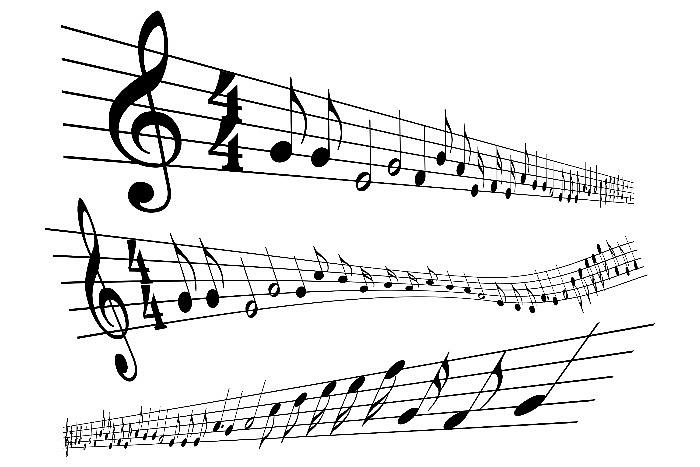Comment: Where are the music teachers?

Guest writer Mariana Ganea takes a look at Romanians' love for good music and at the need for music teachers for the new generation.
After I discovered the very good acoustics of the Radio Hall, which gives a high quality sound to the shows performed there, last Saturday I went to an event full of meaning, almost historical. Last Saturday, during the Royalty Celebration days a concert at the Radio Hall took place. The very balanced program consisted of the Royal anthem, the Brahms’s Double Concerto for violin and cello, Dvorak’s 9th, The New World Symphony. The performers were the Radio Hall Orchestra conducted by the Romanian Christian Badea (who has conducted at the Royal Opera House in Covent Garden and the Metropolitan New York Opera) and for the Brahms’s concerto the famous Romanian violinist Mihaela Martin and the Swedish cellist Frans Helmerson.
The Brahms’s concerto was marvelously performed by both leads and the orchestra, the dialogues between the violin and the cello transported me to Brahms’s world of German romanticism and the sounds of the Dvorak’s 9th took me to the endless plains of the great and fascinating world which is the Americas.
Listening to the music in a concert hall, where the audience was mostly made of people with a good understanding and knowledge of classical music, I remembered my music teacher from school. He was the person who I now recognize as being responsible for giving me love and understanding for really good music, which has many times shielded me in a way from the ugly parts our modern life and succeeded in saving my soul from being buried by this so pragmatic and savage present world.
My music teacher was an old man with a very interesting life story, which is still relevant today. He was from an aristocratic background and studied in Germany before the Second World War. He was an officer in the Romanian army and fought on the Eastern front gaining the German Iron Cross, but was wounded and sent back to Romania. In the turmoil following the war, my music teacher was labelled as an unskilled worker for a time, before becoming the music teacher in a school of one of the new districts of Bucharest. I remember him with his upright military posture, his grey hair and, above all, his eyes...one green, the other blue.
His music classes have always stayed with me because he never tortured us with theory and solfeggio, he never threatened poor marks and ....he never rose his soft, smooth voice. He only told us about the greatness and universality of music, about those precious people who were called Bach, Mozart, Brahms, Beethoven or Tchaikovsky. But, beyond classes, my music teacher set up a music circle for interested pupils. Every Wednesday afternoon a few students (not more then seven) participated in an hour and a half of music history, followed by one or two recitals. His classes taught me to “see” the golden fields from the Beethoven’s Pastoral Symphony or the moon reflected in a dark lake in the rhythm of the Moonlight Sonata.
I don’t know how many music teachers were that dedicated and professional in those times, I really don’t have enough information, but one thing of which I am almost sure; the love for good music of many Romanians is a fact. Every time when I went to the Radio Hall or the Romanian Athenaeum concerts the hall was full and sometimes many people (mostly young) standing without seats to hear the music. The last concerts performed by Gabriel Croitoru and Horia Mihail drew rapturous standing ovations from the audience.
The George Enescu Festival is appreciated as the most important music festival and now tickets sell out almost immediately after going on sale. Attending such cultural events is part of the lifestyle in certain groups of people. If after ’89 the concert halls, the theater halls were almost empty, as people were fascinated by the daily breaking news, now it seems as if Romanians, in spite of all the discontents, regrets and sorrows, are trying to return to the more spiritual part of life, which assures them that soul food is needed in the modern world. What gives me more confidence in the spiritual future of Romania are these concert halls full, not only by older people, but also by many young people. If the new generations don’t have the opportunity to fall in love with great music, it could be because of many causes, such as the small number of music teachers, the few hours of music classes in school, a curriculum filled with practical, technical studies, an almost generalized disregard to the liberal arts, very poor wages for teachers, and beyond all these, the attitude of many teachers.
Where are the teachers who in spite of all the hardships, professionally carry out their job and love their vocation? Maybe here, a potential solution could be a re-thinking of the teacher’s condition and the curriculum. The need for food for the soul is seen in every concert hall and if young people, who didn’t have my music teacher, still attend these concerts, this can only be a good sign for the rebirth of the Romanian soul.
By Mariana Ganea, Guest Writer
(photo source: sxc.hu)















